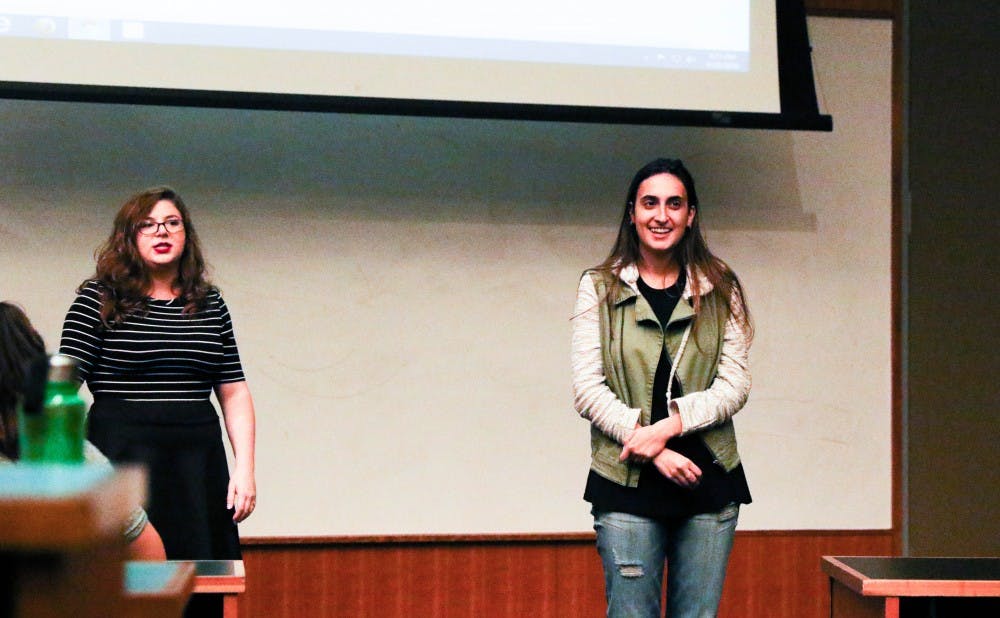You know the "Student Activities Fee" you pay each semester? We don’t know where most of that money goes anymore.
Every semester, students pay a $129.50 “Student Activities Fee." A portion of this fee goes to Duke University Union, and the rest of it to Duke Student Government. Part of DSG's money from the fees goes to an annual budget that allocates money to all chartered student organizations. Last year, the annual budget was a little more than $400,000. The rest of DSG’s portion of the student activities’ fee goes to the SOFC programming fund—which was $180,000 for each semester this year—that provides money for events that organizations run throughout the year.
Last year, every program request was uploaded onto the public DSG Google Drive. This year, however, all the information has been moved to a private Duke Box folder.
“We have switched over to a new system since now we have been told by [the University Center for Activities and Events] to not use Google Drive,” wrote SOFC Chair Alexa Soren, a senior, in an email.
Tearria Beck-Scott, the advisor for SOFC and the student development coordinator at UCAE, wrote in an email that UCAE asked SOFC to move to a private server because it was a secure Duke network, and Google Drive was not.
“With the confidential information being shared it needed to be moved to a storage system that is considered secure,” Beck-Scott wrote.
Soren wrote that “groups’ fund codes as well as other information” are confidential.
However, all program requests last year were uploaded to the DSG Google Drive with organization fund codes and other organization information. As of Thursday evening, these documents from last year remain publicly available.
In fact, so far this year, Soren has presented 18 SOFC program requests to the Senate, as is required when a program costs more than $1,500. Most of those 18 program requests contain the fund codes that Soren added were confidential.
Former SOFC Chair, Nikhil Gavai, Trinity ‘16, noted that another potential reason for privatizing program requests was to shield SOFC from being manipulated by dissatisfied student groups.
“It’s just kind of an oversight on our part that we didn’t protect those files or make them more hidden because a lot of the time people don’t understand the nuances that SOFC has,” Gavai said. “We try to make that clear with guidelines on the website, but it’s very easy to nitpick a particular request and kind of falsely represent it to make an argument.”
Gavai argued that public criticism would reduce SOFC’s ability to make decisions. He added that it is wrong to solely criticize SOFC because DUU's decisions about how to spend its portion of the student activities fee are largely private.
“To nitpick one side of the student activities fee for not being transparent is a little unfair to SOFC and DSG,” Gavai said.
Soren denied The Chronicle’s request to access to the SOFC records, but wrote in an email Monday that she would release an op-ed by the end of November with information about where their money was spent.
“I do recognize the need for transparency and appreciate you bringing up that point,” Soren wrote.
Thursday evening, Soren emailed The Chronicle with a proposal to ask the consent of each group to make their program requests publicly available.
DSG Treasurer Luke Farrell and Kristina Smith, senator for services and a member of the Financial Oversight and Advisory Committee, both sophomores, said that there should be a way provide access to all program requests, while protecting the private information.
Correction: The lede of this article was updated to clarify that part of the money obtained from the Student Activities Fee—DSG's annual budget—is still public. The Chronicle regrets the error.
Get The Chronicle straight to your inbox
Signup for our weekly newsletter. Cancel at any time.
Class of 2019
Editor-in-chief 2017-18,
Local and national news department head 2016-17
Born in Hyderabad, India, Likhitha Butchireddygari moved to Baltimore at a young age. She is pursuing a Program II major entitled "Digital Democracy and Data" about the future of the American democracy.

